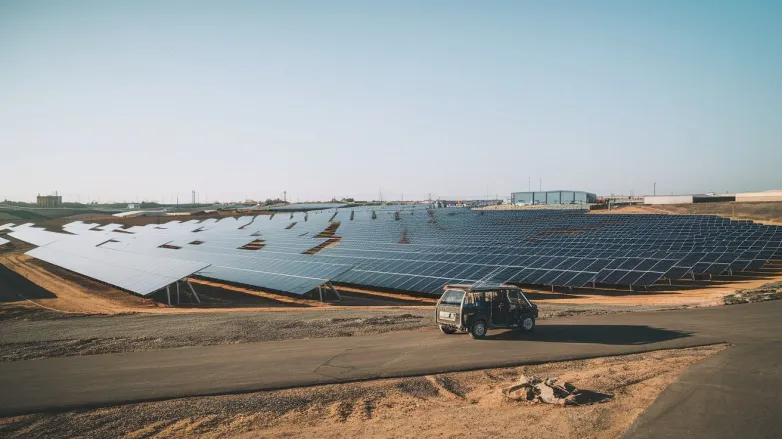EDPR Launches 87-MWp Solar Project in Germany
- EDP Renovaveis SA kicks off Germany's Ketzin solar farm, aiming to power 28,000 homes by 2025 and spearheading ambitious 5 GWp solar growth in the region.

EDP Renovaveis SA has initiated construction on the Ketzin solar farm in Brandenburg, Germany, marking its first utility-scale renewable energy project in the country. The 87-MWp facility is set to become operational in the latter half of 2025, with an annual output of approximately 91 GWh, sufficient to power over 28,000 households. The project is being developed in partnership with Kronos Solar EDPR, a domestic solar developer acquired by EDP in 2022.
With ambitious plans for the German market, EDP aims to develop over 5 GWp of utility-scale solar projects by the end of the decade. The company intends to install more than 400 MWp of large-scale solar in Germany within the next two years while also integrating wind and energy storage solutions. EDP foresees Germany representing about 20% of its European investments by the end of its current business plan and 25% by 2030, emphasizing its strategic importance in the company’s global expansion.
How will EDP Renovaveis influence Germany's solar energy landscape by 2030?
EDP Renovaveis' Influence on Germany's Solar Energy Landscape by 2030
- Investment Surge: EDP Renovaveis is poised to invest significantly in Germany, targeting the development of over 5 GW of solar capacity by 2030. This investment will not only lead to more renewable energy production but also enhance investor confidence in Germany’s solar market.
- Job Creation: The construction and operation of large-scale solar projects are expected to create thousands of jobs in Germany’s renewable energy sector. EDP's entry into the market may stimulate local job growth in areas such as engineering, construction, project management, and maintenance.
- Collaborative Partnerships: The partnership with Kronos Solar EDPR illustrates EDP's strategy to leverage local developers’ expertise. This collaboration could pave the way for more strategic alliances that will further promote the solar industry in Germany.
- Technological Advancements: EDP's focus on integrating energy storage solutions alongside solar projects is likely to drive technological innovations. This could lead to improved energy efficiency and flexible energy supply, which is crucial for balancing the intermittent nature of solar generation.
- Enhanced Energy Security: With the construction of projects like the Ketzin solar farm, Germany will increase its capacity for renewable energy, thereby reducing reliance on fossil fuels and enhancing national energy security. This diversification of energy sources is crucial in light of the recent global energy crises.
- Contribution to Climate Goals: EDP’s aggressive solar expansion aligns with Germany's ambitious climate targets. The additional capacity will contribute significantly to the country's renewable energy goals, facilitating Germany's transition to a low-carbon economy.
- Market Competition: EDP’s entry into the German solar market may stimulate competition, encouraging existing players to innovate and reduce costs. This competitive environment can lead to better prices for consumers and more efficient project developments.
- Increased Public Awareness: EDP’s large-scale projects will draw public attention to the importance of solar energy, potentially increasing community acceptance and support for future renewable projects, which can foster a more favorable public policy environment.
- Regional Development: The development of solar farms, particularly in less industrialized regions, may stimulate local economies. By investing in rural areas, EDP can help promote economic development while simultaneously expanding the renewable energy footprint.
- Long-Term Sustainability: EDP’s commitment to maintaining 20-25% of its European investments in Germany showcases a long-term vision that emphasizes sustainable development and energy resilience, ensuring that its projects align with future energy needs and trends.
- Educational Initiatives: EDP Renovaveis may also invest in educational programs and partnerships with local academic institutions to foster knowledge transfer regarding renewable technologies and sustainable practices, inspiring a new generation of energy professionals in Germany.
By pursuing these initiatives, EDP Renovaveis is set to significantly shape Germany's solar energy landscape, fostering a greener, more sustainable future by 2030.
Also read

